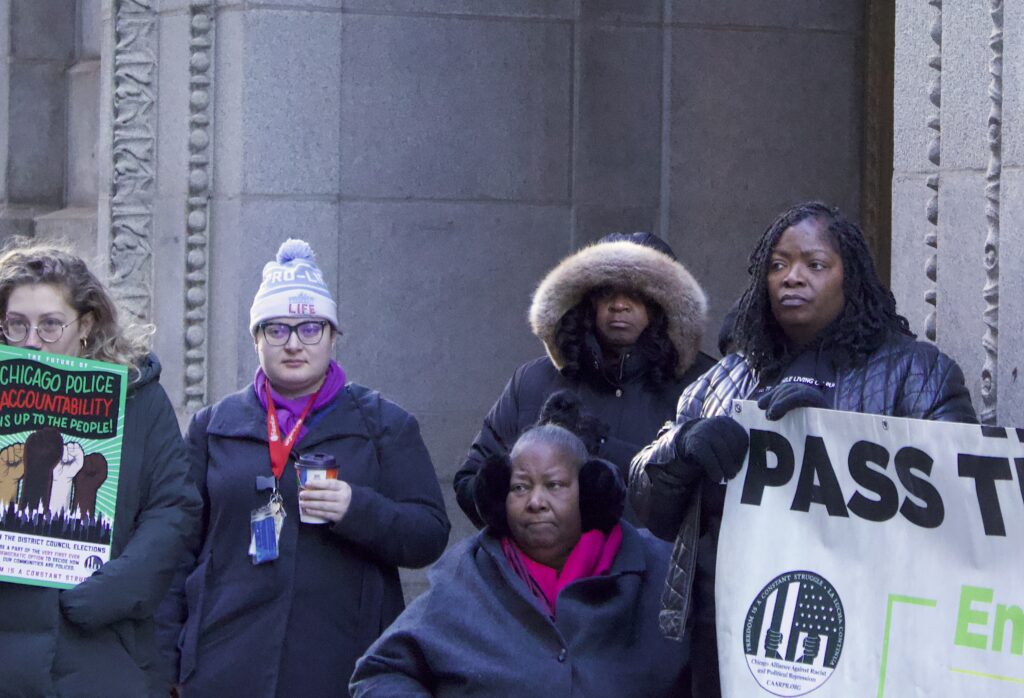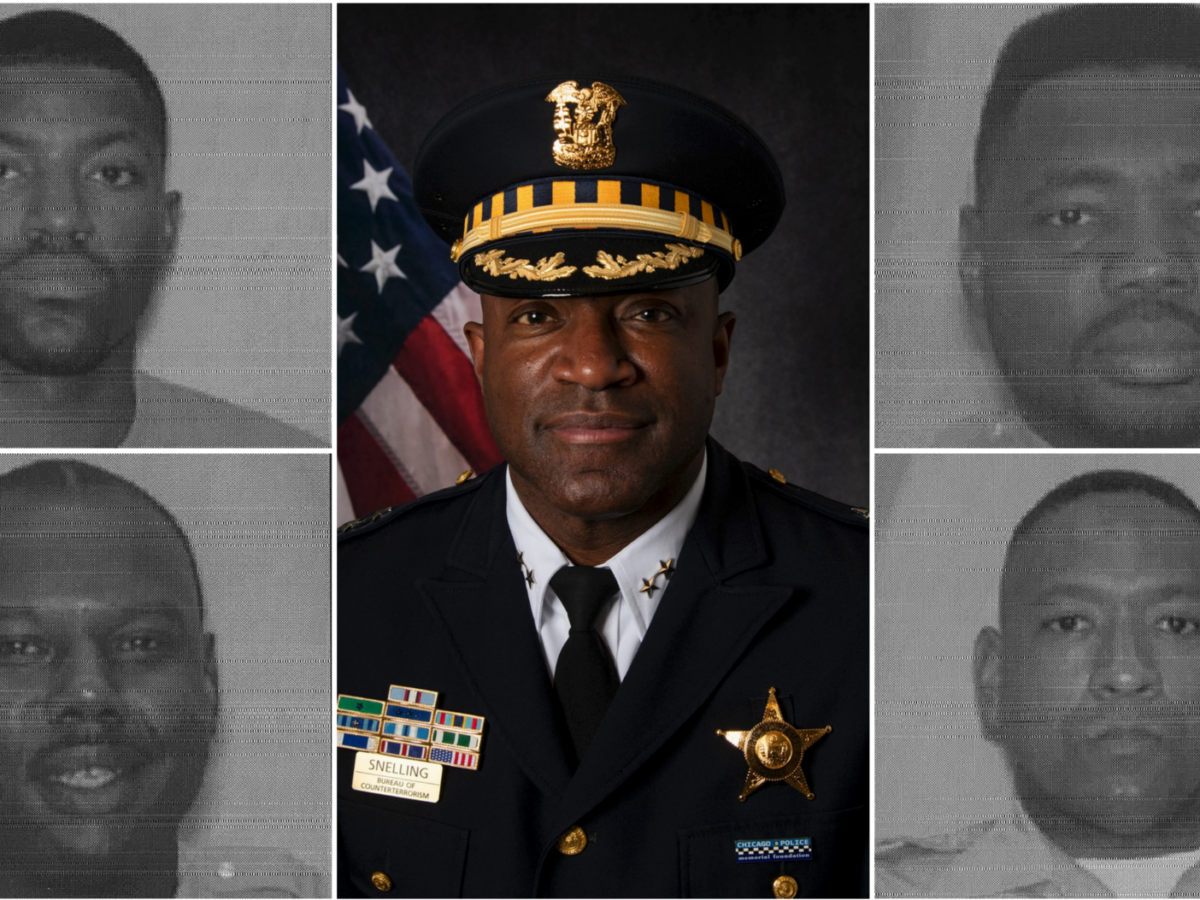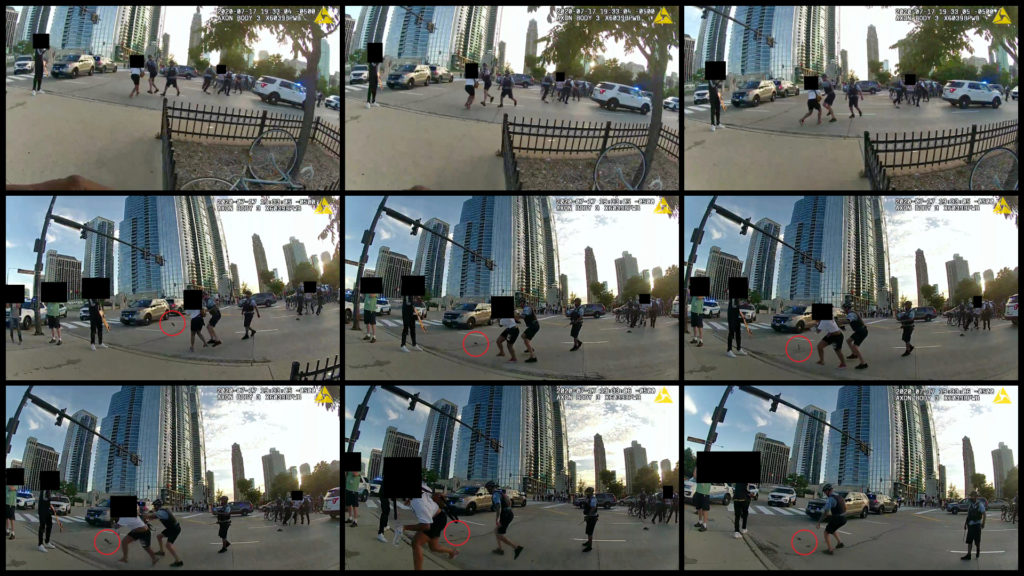By a vote of 17–33 on Wednesday, the City Council rejected an arbitrator’s decision to allow police officers who face serious discipline to circumvent the Police Board, which has historically ruled on discipline, and have their cases heard by an independent arbitrator instead. At least three-fifths of the Council had to vote against the ruling to reject it. At the same meeting, the Council separately passed (42–7) an extension to the Fraternal Order of Police (FOP) contract that doubles pay raises and gives all officers a bonus.
The vote sends the ruling back to the independent arbitrator and sets up a likely court battle in which a Cook County judge will rule on whether to uphold it. Ald. Silvana Tabares (23rd Ward), who voted in favor of the ruling, said during the meeting a lawsuit would be an “open-and-shut case” because state law already gives police officers a right to arbitration.
Independent arbitrator Edward Benn, who has ruled on police and firefighter misconduct cases for years, issued the ruling in August. John Catanzara, the president of the FOP, the largest union representing Chicago police officers, lauded the decision at the time. Johsnon and Police Board president Ghian Foreman called it a “major setback for police accountability and reform” at the time. Deborah Witzburg, the city’s inspector general, also criticized the ruling at the time, saying that the police disciplinary process must be transparent.
Benn’s ruling would effectively remove transparency from police discipline in the most serious cases. Police Board rulings are currently public, as are COPA findings. Under the new ruling, officers who face firing or suspensions of more than a year for misconduct would have their cases heard behind closed doors by an arbitrator. In the ruling, Benn contended that the illinois Public Labor Relations Act, which was passed in 1984, “could not be more clearer making final and binding arbitration the public policy of the state.”
In October, Johnson issued a statement asking the City Council to reject the ruling. Last week, the council’s Workforce Development Committee did so by a 10–5 vote while also approving the rest of the FOP’s contract extension.
The extension doubles officers’ raises in 2024 and 2025 from 2.5 to 5 percent and ties pay hikes to inflation in subsequent years; provides a one-time, $2,500 bonus to all officers; gives twenty-year veterans a retention bonus of $2,000 for each year on the force; and provides twelve weeks of paid family leave. An analysis by the Better Government Association found the contract extension will cost the city at least $76.8 million above what’s included in the 2024 budget, passed by the City Council in November.

Members of the Empowering Communities for Public Safety (ECPS) Coalition, which was instrumental in passing an ordinance establishing more community oversight of police via the new Community Commission for Public Safety and Accountability (CCPSA) and three-member elected councils in each police district, rallied in opposition to the arbitrator’s ruling ahead of Wednesday’s meeting. Alderpersons Maria Hadden (49th Ward) and Byron Sigcho-Lopez (25th Ward) spoke at the rally. Social worker Anjanette Young, who was the subject of a botched police raid on her home in 2019, also attended the rally.
During the meeting, Hadden, who voted against the ruling, said “public accountability for the highest misconduct violation is key to us having an honest and healthy relationship with police.”
Ahead of Wednesday’s vote, forty-one Police District Council members representing eighteen of the city’s twenty-two police districts signed an open letter condemning the arbitrator’s decision, which the letter called an effort “to sidestep oversight and dodge accountability.”
The letter noted that the Police Board will for the first time “be chosen and governed by” CCPSA. Ratifying the arbitrator’s decision “would significantly erode efforts for transparency and accountability at the precise moment when both are within reach,” the letter read. “Such an action also deals a devastating blow to community trust in law enforcement’s ability to self-regulate, underscoring the need for independent oversight now more than ever.”
The CCPSA does not have direct control over disciplinary cases, but it does have influence over how they’re administered. The commission can recommend hiring and firing the chief administrator of the Civilian Office of Police Accountability (COPA), which investigates misconduct cases, as well as members of the Police Board, which recommends disciplinary action for officers whose misconduct allegations are sustained, and the police superintendent, who still has the final say over such discipline.
“Currently there are five police-involved shootings and four domestic violence cases before the Police Board. We cannot afford to have these cases heard behind closed doors,” said Anthony Driver, the CCPSA president, on Tuesday. Driver noted that in June, the Police Board voted to fire one of the officers involved in the botched 2019 raid on social worker Anjanette Young’s home, and said “we would’ve never known the fate” of that officer without the board’s transparency.
“The City Council made the right call today and stood for transparency and justice, and our city will be better because of it,” Driver said after the vote. “Transparency is a prerequisite to justice.”
Jim Daley is an investigative journalist and senior editor at the Weekly.





And none of this will change the violence Chicago residents experience from non police on a daily basis. Chicago is still one of the most dangerous cities in America.